More than 10 schools from the U.S. and Mexico traveled to Baylor University in Waco, Texas, for “The Eugene Scassa Mock Organization of the Americas Summit” from Nov. 8-10. Six Hilltoppers represented St. Edward’s University, including five international students, in debates and discussions over different issues and resolutions centered on countries in the Western Hemisphere.
While this year marks the 28th occurrence of the conference, it is the second time the university has participated after going on hiatus due to the COVID-19 pandemic, with Rodrigo Nunes as their faculty adviser. Based on the collaborative feedback Nunes received from last year’s group, he was able to prepare for this year’s conference. The students who were new to the event expressed how intimidating the environment was at first.
“We were surrounded by really smart people, and at times it made me doubt myself because these people have been doing it for years,” Camila Colin, a junior from Mexico, said. “We only had one team. We’re talking about Texas State that had six teams. They were overly prepared. They knew all the languages and all the parliamentary procedures, they knew everything. And coming from someone doing a model for the first time — it was really hard.”
The team represented the Nicaraguan delegation on four committees – the General Committee, the Secretariat Executive for Integral Development, the Secretariat for Multidimensional Security and the Committee for Juridical and Political Affairs.
“Representing a dictatorship in a democratic way was definitely challenging,” Zélie Alvernhe, a junior from France, said. “It was a lot about adaptability and critical thinking. We had to make sure that we were respecting the interests of Nicaragua, which is a dictatorship, while trying to show cooperation within international organizations.”
Throughout the model, discussions and resolutions were raised on issues of environment, migration challenges, state sovereignty, corruption and democracy.
“Participating in this model made me realize that there’s a force for change, but there’s a lot of bureaucracy behind it and a lot of political agendas too,” Bruno Echt Fusaro, a junior from Argentina, said. “It also makes me realize the importance of cooperation between nations. The only way forward is not only expressing your opinion but to talk, finding a middle ground. And I think that you can translate that to any problems that are happening in the world.”
While Echt Fusaro has previously participated in model U.N. simulations back in his home country, this was the first time for all the other members of the team. Senior Kaylie Mowell from the U.S. explains that this experience, although intimidating, allowed her to put into practice the skills she has acquired over the years as a political science student.
“It was an extremely fulfilling experience because I never did model U.N. or anything,” Mowell said. “It was a bit daunting at first – I didn’t really know what I was doing. But I’m a senior, so those skills I’ve learned over the past three and a half years from my political science degree and my concentration in international relations, I was able to put it to use during this conference and compile all my knowledge and skills into that.”
The students brought home three awards, including third place for “Distinguished Overall Delegation” and first place for “Outstanding Team Position Paper.” The team members state that winning first place for the position paper exemplifies the quality of their collaboration.
“It was a lot of initiative from everyone to succeed, not just for themselves, but for the entire team, recognizing what the limitations of our knowledge are and filling in those gaps,” Katia Rivera, a senior from El Salvador, said. “It requires a massive amount of research. You have to make claims that have evidence and an understanding of the country you represent so well that, when you are asked questions about it or someone tries to find holes in what you are saying, you can proudly reply with your research and evidence.”
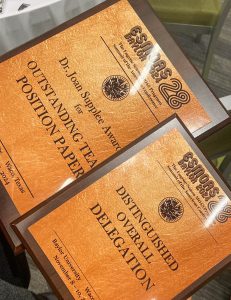
The team members reiterate the importance of teamwork, collaboration and communication.
“I learned a lot about diplomacy, leadership and how to work as a team,” Isabel Custodio, a junior from Angola, said. “And I think that played a crucial role in learning how to tackle global issues.”
Nunes explains that participating in this mock summit was a very effective way of developing team-building skills, especially when working with other people to achieve a common goal, and encourages more student participation.
“This year was interesting because we had a student who did very well and is not even in political science or international affairs, he’s in writing and rhetoric,” Nunes said. “I really want students from all kinds of majors to be interested.”



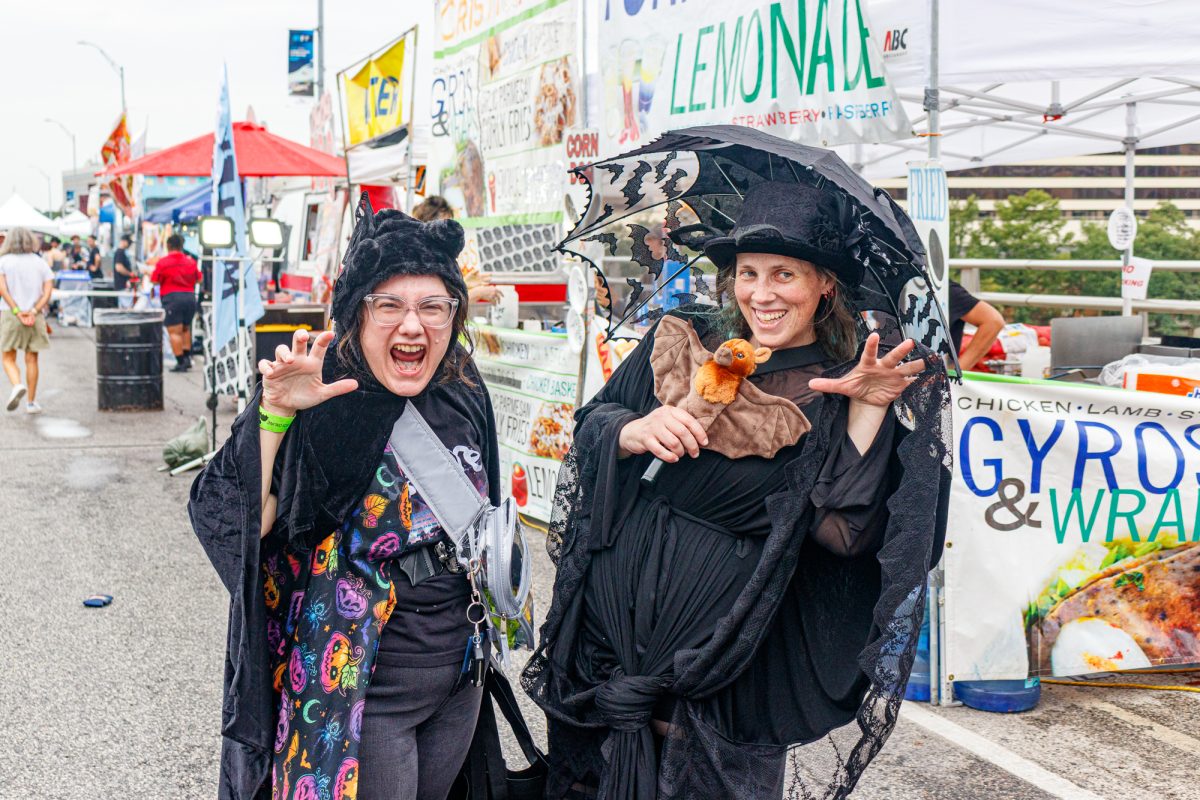
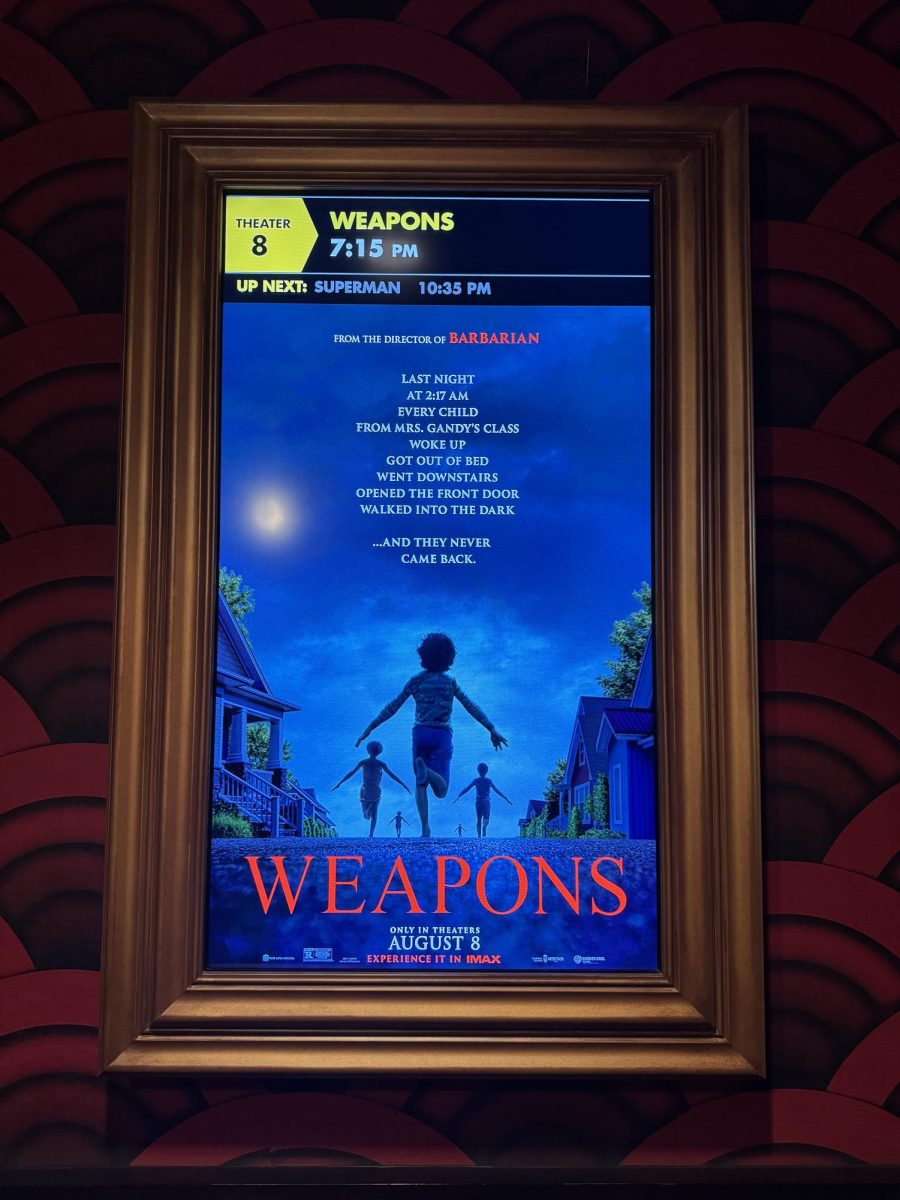

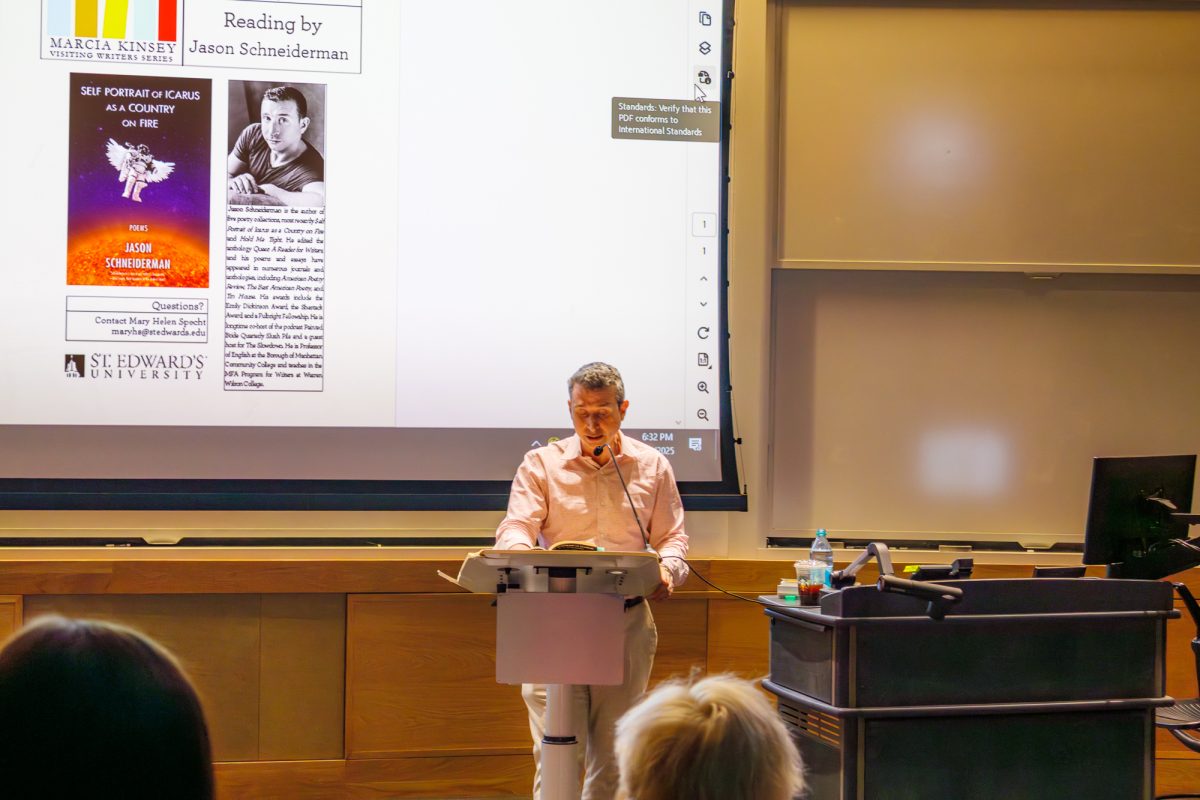
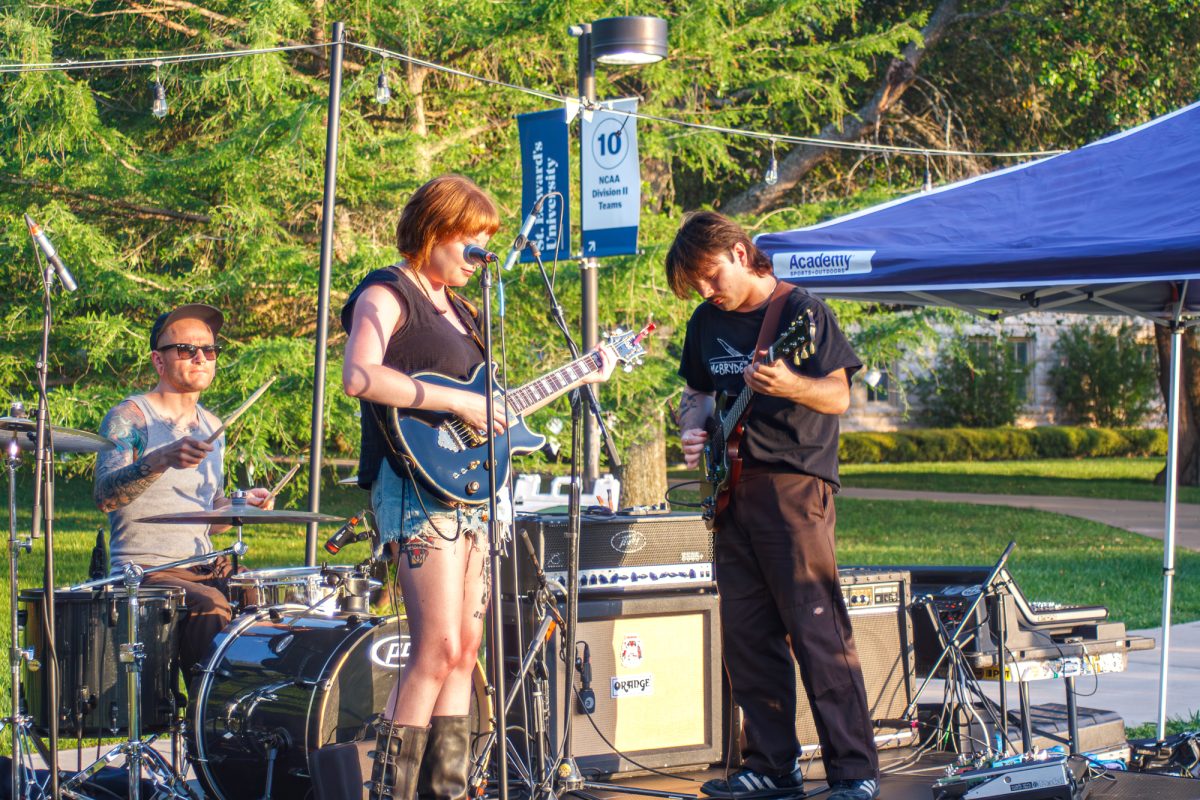
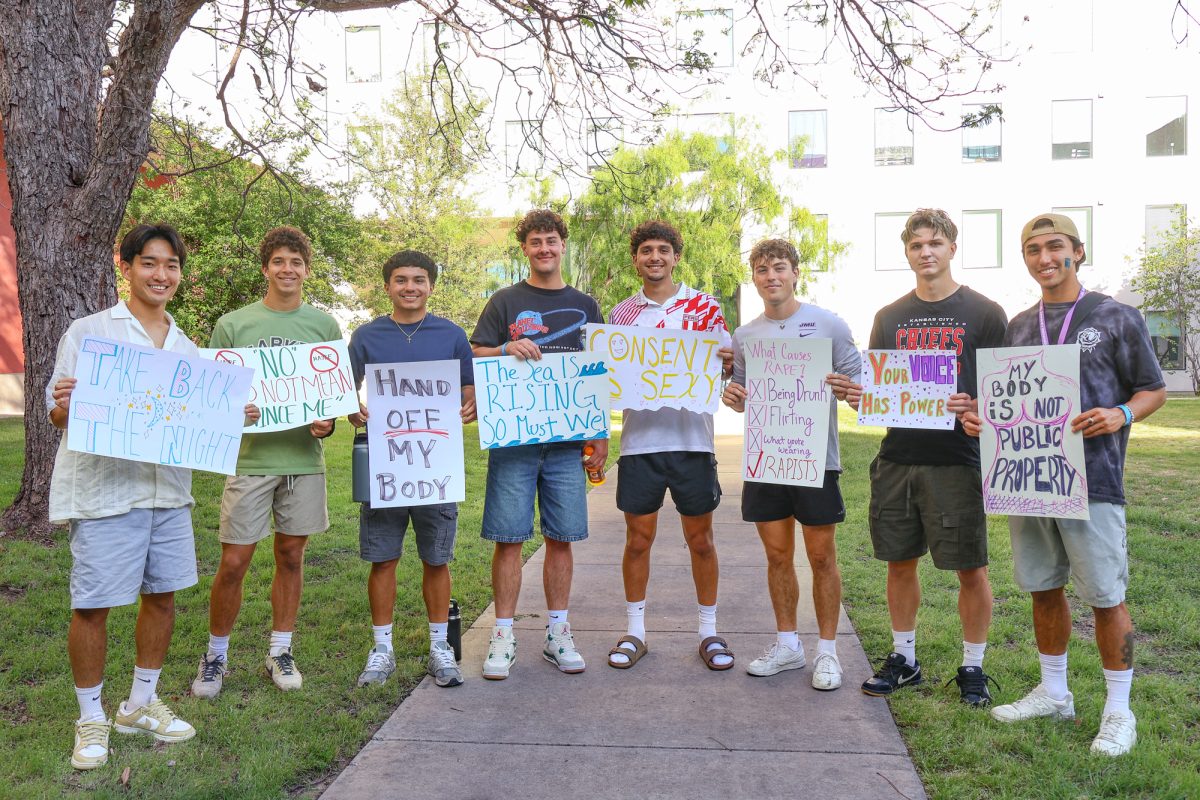
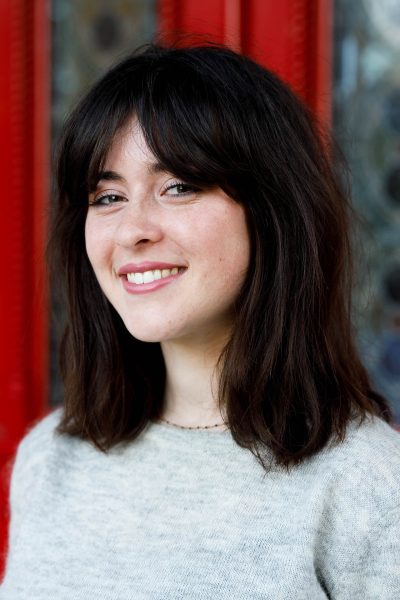
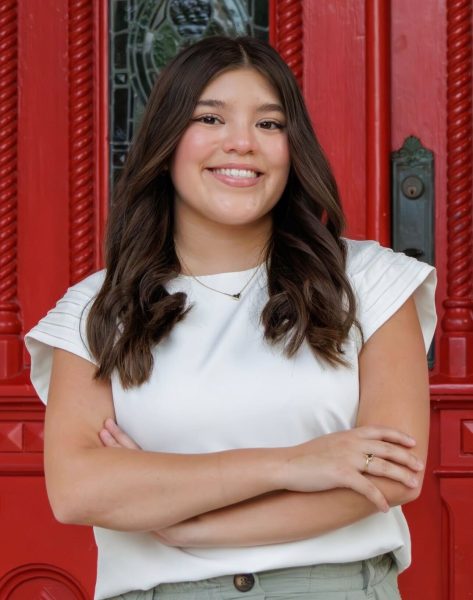
Rodrigo Nunes • Nov 19, 2024 at 12:53 pm
Thanks for the story!
One correction: This was not the second year we’ve done this. It was the second year since the pandemic – we did it a few times in the 2010s. Dr. Bill Nichols was the first faculty advisor on this, and I’ve done it a total of four times.
Cheers,
Dr. Nunes